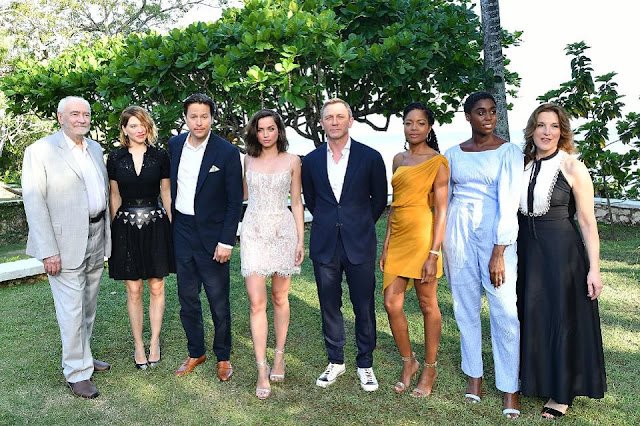Why 'Bridge of Spies' Should Lead School Curriculums for Film Studies
Why Steven Spielberg's cold war thriller is the finest example the next generation of filmmakers could ever learn from
 |
| 'Bridge of Spies' (CREDIT: 20th Century Pictures) |
by Jack Linsdell
Film has, for many years, been seen as a career only open to those who are rich and/or famous enough to "buy" or luck their way into the industry, especially in the context of the more senior creative roles like your writers, directors, producers, editors, composers, cinematographers and the like. But, over the years, each new generation of filmmakers has shown a gradual diversity away from the exclusive, upper class elites to the more "ordinary" folks. I'm not just talking about gender, race and nationality, but also in terms that someone whose unknown and not particularly rich or connected can now catch a break as a filmmaker and turn it into a career of some capacity. That never happened 60 years ago. Even later than that.
And, with this change has come the ever increasing demand to improve the education system in regards to film studies. Now, whether you take the course in school, college or university, students undertaking film studies across the world are generally educated by examining the very best movies (so saeth exam boards or teaching bodies) to learn "how" to make an effective film. Now, I'd argue from personal experience, that film is one of those jobs so to speak that can be taught in the classroom but only learnt through application. However, it's the study of a few, classic films that are selected on merit of their sheer excellence that forms the basis of education for our next generation of filmmakers. Here in the UK, students are normally taught around classics from Alfred Hitchcock (think Pyscho or Vertigo), cult movies like Blade Runner or Fight Club and British treasures like Trainspotting. I'm not disputing any of these as being bad examples, but I believe some more contemporary movies (which are overlooked) need to be added to the syllabus on the merit that they are some of the best examples of storytelling ever created.
And, if you read the headline, you know that one of them should be Bridge of Spies. Steven Spielberg's 2015 cold war-thriller has become a firm favourite of mine since I first saw it in the cinema that year. But, beyond being a treasured favourite, it's also been a key influence and learning tool for me as a filmmaker. Sure, it earned decent reviews, a solid $165 million worldwide on a $40 million budget, and enjoyed plenty of awards success including six Oscar nominations and one win for Mark Rylance (for Best Supporting Actor). But, Bridge of Spies is more than just a successful movie in the conventional perimeters. Yes, it's a fine example to upcoming filmmakers of how to make a movie that pleases critics, entertains audiences, makes a profit and picks up some trophies. But, that's not why I'm suggesting it to be on the syllabus.
No. In fact, the Tom Hanks-led flick is one of the best examples of exceptional storytelling. Yes, it's a Spielberg film which gives it a level of prestige and craftsmanship already. But, his use of framing, movement and aesthetic is nothing short of masterful as most definitely the best of his career. Not to mention one of the best written and structured screenplays courtesy of scribes Matt Charmain and the Coen Brothers, which sets out its story in a seamless and stylish way to maximise engagement and emotional response. Added to that, the excellent casting, and then performances from those leading (Hanks, Rylance, Amy Ryan, Scott Shepard, Alan Alda, Sebastian Koch) and supporting, all of whom give an acting masterclass. Not to forget, a really well edited movie courtesy of Spielberg's long time collaborator Michael Kahn, which makes a point to service to story over audience expectations, and Thomas Newman's emotive and sparingly used score.
The reason why Bridge of Spies is such a good movie for students and wannabe filmmakers to study is that it demonstrates how a film's quality is not down to one outstanding pioneer of their craft giving their best work. No, the best movies are those that pull together a series of creatives at the top of their game, to make a "best picture". Take away any one of these people from Bridge of Spies and the movie wouldn't be as good.
Plus, it's the finest example around of how film is dependent on everything working together. Sure, Spielberg's shots and blocking work a treat, but only if editor Kahn composes the film in such a way to bring the best out of every single moment. Sure, Hanks and co. each embody their character's with with such charm and emotion that they become relatable, but it's Newman's score that arguably pulls us into those moments of feeling their emotion. My point is that Bridge of Spies is one of those rare movies that is near on perfect, one which is only created once in a lifetime because very rarely do you get every single person giving their career best in the same movie. So, it would make sense for it to stand alongside the cult classics in the syllabus in educating the next filmmakers on not only on the importance collaboration in making a good movie, but also showing them how each element of a film is meant to be done.
Bridge of Spies may have been one year's major Oscar contender and a notch on a prestigious director's filmography, but it's the sheer brilliance in the way it so perfectly tells its story through the combination of its every component that should also put it in the classrooms in front of the film students of the world. And, if you haven't seen my favourite movie, what are you still sitting reading this for?


Comments
Post a Comment